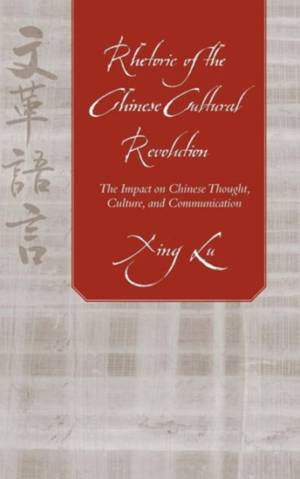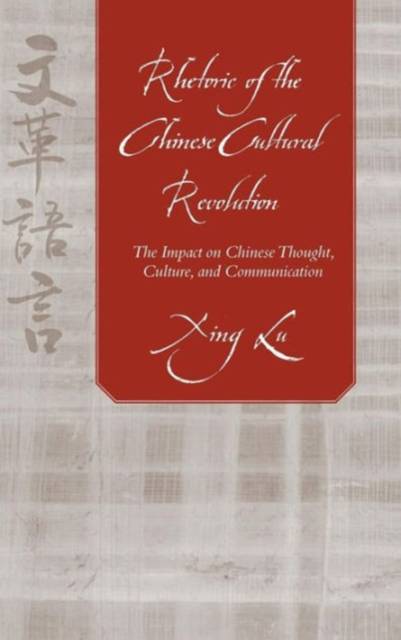
- Retrait gratuit dans votre magasin Club
- 7.000.000 titres dans notre catalogue
- Payer en toute sécurité
- Toujours un magasin près de chez vous
- Retrait gratuit dans votre magasin Club
- 7.000.0000 titres dans notre catalogue
- Payer en toute sécurité
- Toujours un magasin près de chez vous
Rhetoric of the Chinese Cultural Revolution
The Impact on Chinese Thought, Culture, and Communication
Xing Lu
76,95 €
+ 153 points
Format
Description
Now known to the Chinese as the ten years of chaos, the Chinese Cultural Revolution (1966-1976) brought death to thousands of Chinese and persecution to millions. Rhetoric of the Chinese Cultural Revolution identifies the rhetorical features and explores the persuasive effects of political language and symbolic practices during the period. Xing Lu examines how leaders of the Communist Party constructed and enacted a rhetoric in political contexts to legitimize power and violence and to dehumanize a group of people identified as class enemies. Lu provides close readings of the movement's primary texts - political slogans, official propaganda, wall posters, and the lyrics of mass songs and model operas. She also scrutinizes such ritualistic practices as the loyalty dance, denunciation rallies, political study sessions, and criticism and self-criticism meetings. that of her family, as well as with interviews conducted in China and the United States with persons who experienced the Cultural Revolution during their teenage years. Through rhetorical analyses Lu addresses the questions of why such a cultural holocaust happened in China, how speech became so cultic and politicized, and how the rhetoric of fanaticism induced terror and mass hysteria. Lu contends that the rhetoric of the Cultural Revolution has impacted Chinese thought, culture, and communication in ominous ways. In the name of defending Mao's revolutionary cause, the Cultural Revolution polarized Chinese thought through its deployment of moralistic terms, filled human relationships with hatred and mistrust, and replaced rich a artistic expression with formulaic political jargon and tedious ideological cliches. To illustrate the severity of the revolution's after-effects, Lu examines public discourse in contemporary China and compares the rhetoric of the Cultural Revolution with that of Stalinist Russia and Nazi Germany.
Spécifications
Parties prenantes
- Auteur(s) :
- Editeur:
Contenu
- Nombre de pages :
- 272
- Langue:
- Anglais
- Collection :
Caractéristiques
- EAN:
- 9781570035432
- Date de parution :
- 01-08-04
- Format:
- Livre relié
- Format numérique:
- Genaaid
- Dimensions :
- 165 mm x 239 mm
- Poids :
- 503 g

Les avis
Nous publions uniquement les avis qui respectent les conditions requises. Consultez nos conditions pour les avis.






